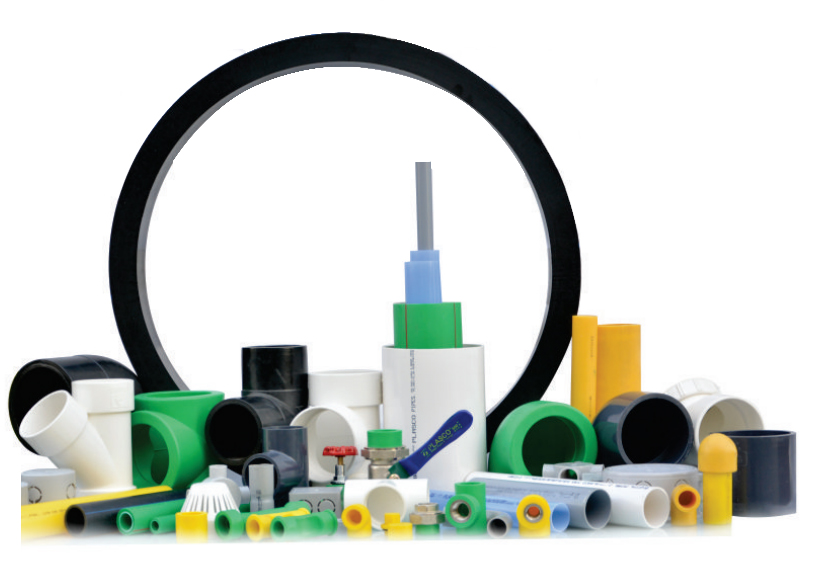
In the world of infrastructure and construction, pipes play a crucial role in facilitating the transportation of fluids and gases. Whether it’s water supply, sewage systems, or industrial applications, the integrity of pipes is paramount to ensure the smooth functioning of various sectors. This brings us to the critical aspect of quality assurance in pipe manufacturing. Ensuring reliable products not only guarantees the safety of the end-users but also contributes to the longevity and efficiency of the overall system. In this article, we will delve into the significance of quality assurance in pipe manufacturing and explore the processes that go into creating pipes that meet stringent standards.
The Importance of Quality Assurance
Quality assurance in pipe manufacturing is more than just a procedural checkbox—it is the cornerstone of delivering products that perform as expected. Pipes are subjected to diverse conditions, including varying temperatures, pressures, and chemical environments. Inadequate quality control measures can result in leaks, bursts, and system failures, which can lead to catastrophic consequences, financial losses, and environmental damage.
Here are some key reasons why quality assurance is indispensable in pipe manufacturing:
Safety of End-Users: Whether the pipes are used for delivering potable water, conveying hazardous chemicals, or transporting gases, the safety of end-users is non-negotiable. Quality assurance processes ensure that pipes are manufactured to withstand their intended applications without compromising safety.
Longevity and Reliability: Well-manufactured pipes are designed to have a long service life. Quality assurance measures ensure that pipes are resistant to corrosion, chemical degradation, and other factors that can lead to premature failure. This translates to reduced maintenance needs and overall system reliability.
Compliance with Standards: Various industries have established standards and regulations that pipes must adhere to. These standards cover factors such as material composition, dimensions, pressure ratings, and testing procedures. Quality assurance guarantees that pipes meet these standards, ensuring compatibility and interoperability within existing systems.
Cost-Efficiency: Investing in quality assurance during the manufacturing process might require additional resources upfront, but it saves costs in the long run. Quality pipes require fewer replacements, repairs, and maintenance interventions, leading to significant savings over their lifespan.
Processes Involved in Quality Assurance
Quality assurance in pipe manufacturing encompasses a series of processes that begin at the raw material stage and extend throughout the entire production cycle. These processes collectively ensure that the end products meet the highest quality standards. Here are some key steps in the quality assurance journey:
Raw Material Inspection: The foundation of a quality pipe lies in the materials used for its construction. Raw materials, such as polymers, metals, or ceramics, are inspected for their quality, consistency, and suitability for the intended application. Any deviations from the required specifications can be identified and addressed at this stage.
Production Standards: Pipe manufacturers must adhere to established production standards that outline factors such as dimensions, wall thickness, pressure ratings, and tolerances. These standards provide a blueprint for creating pipes that function as intended.
Manufacturing Processes: Quality control checkpoints are integrated into various stages of the manufacturing process. These checkpoints include monitoring the extrusion process, pipe formation, and cooling. Automated systems can detect deviations from the expected parameters, allowing for immediate adjustments.
Testing and Quality Checks: Rigorous testing procedures are conducted on sample pipes to verify their performance characteristics. These tests include pressure testing, leak testing, and dimensional checks. Samples are subjected to extreme conditions to simulate real-world scenarios, ensuring that the pipes can handle the demands of their applications.
Traceability and Documentation: Each pipe’s journey from raw material to finished product is documented. This traceability enables manufacturers to identify any issues that may arise during production. It also aids in quality control audits and ensures that every pipe can be traced back to its source.
Certifications and Approvals: Once pipes pass all quality assurance tests and checks, they receive certifications and approvals from relevant industry bodies. These certifications provide assurance to customers that the pipes meet established standards and are fit for their intended purpose.
Conclusion
Quality assurance in pipe manufacturing is a multifaceted process that involves meticulous attention to detail, adherence to standards, and a commitment to delivering reliable products. The importance of these processes cannot be overstated, as the safety, efficiency, and longevity of infrastructure systems hinge on the quality of pipes used. Investing in quality assurance not only benefits manufacturers by reducing liabilities and enhancing reputation but also provides end-users with the peace of mind that comes with knowing they are relying on pipes that have undergone rigorous testing and evaluation.
Plasco Pipes & Fittings stands out as a premier manufacturer in Pakistan, offering a high-quality product range that sets a benchmark in the industry. With an unwavering commitment to excellence, Plasco has established itself as a trusted name, delivering top-notch pipes and fittings that meet stringent quality standards. Their dedication to quality, innovation, and customer satisfaction makes them a preferred choice for those seeking reliable solutions for various applications. Whether it’s water supply, drainage, or industrial use, Plasco Pipes & Fittings continues to showcase its expertise and dedication to providing the best in class, making them a true leader in the field of piping solutions in Pakistan.
